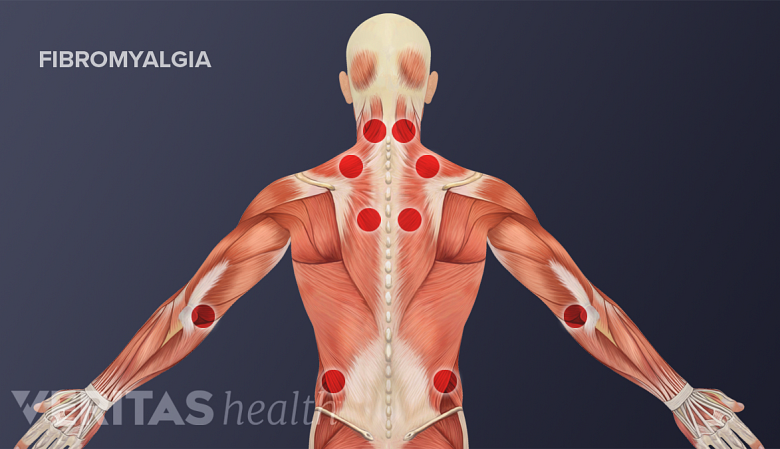Fibromyalgia's hallmark symptoms of fatigue, widespread pain, sleep problems, and difficulty concentrating are not unique. Many other conditions share some of these symptoms.
While widespread muscle pain is common with fibromyalgia, it could be the result of a different condition.
In This Article:
- Fibromyalgia or Not? 6 Conditions to Know
- Celiac Disease and Low Thyroid vs. Fibromyalgia
- Lyme Disease and Rheumatoid Arthritis (RA) vs. Fibromyalgia
- Chronic Fatigue Syndrome and Myofascial Pain Syndrome vs. Fibromyalgia
Fibromyalgia's many nonspecific symptoms—and the fact that there is no widely accepted diagnostic test for the condition—means that fibromyalgia can be misdiagnosed as something else.
See How to Get a Fibromyalgia Diagnosis
Less well-known symptoms of fibromyalgia include irritable bowel syndrome, headaches, menstrual problems, jaw issues, and hypersensitivity to noises and light. The doctor must also take into account the tendency for people living with fibromyalgia to have at least one additional medical condition.
Celiac Disease, Lyme May Be Misdiagnosed
Getting the correct diagnosis is important, so treatment can be tailored to the individual's situation. Fibromyalgia may be mistaken for one of the following six conditions, among others:
- Celiac disease or a gluten sensitivity
- Hypothyroidism/Hashimoto's disease
- Lyme disease and other tick-borne diseases
- Rheumatoid arthritis
- Chronic fatigue syndrome (myalgic encephalomyelitis)
- Myofacial pain
See Rheumatoid Arthritis (RA) Symptoms
The process of determining the cause of a patient's symptoms when other conditions have similar features is called a differential diagnosis. Some of the conditions above can be diagnosed with a blood test, so the doctor is likely to use blood tests to narrow the number of possible causes. A differential diagnosis may also require visits to more than one specialist.
Tracking Symptoms Helps Patient and Doctor
To make sure no symptoms are forgotten when meeting with the doctor, sharing a daily log including this information may be helpful:
- Sleep duration and quality
- Pain levels during the day and at bedtime
- Medications taken and the effect on symptom(s)
- Supplements taken and the effect on symptom(s)
- Exercise and pain increase or decrease afterward
- Foods eaten and any problems afterward
- Any psychological treatments used, such as visualization or cognitive behavior therapy, and the results
- Any massage or other therapies and the results
- Pain levels
- Fatigue levels
Keeping this log for at least two weeks is advised. In addition to helping the doctor understand the condition, the individual may notice a pattern of actions—or "triggers"—that lead to symptom flare-ups.











